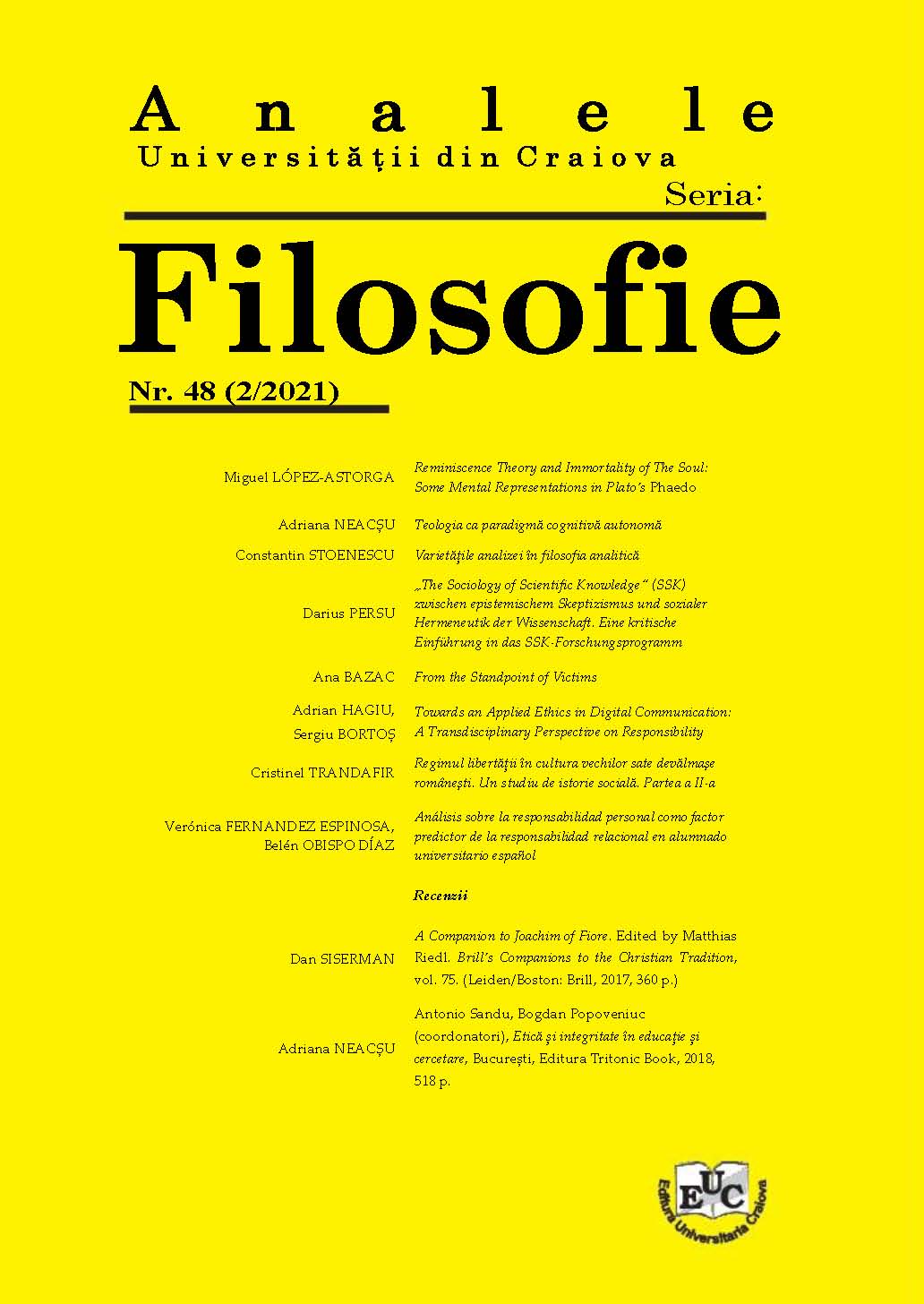Regimul libertății în cultura vechilor sate devălmaşe româneşti. Un studiu de istorie socială. Partea a II-a
The Regime of Freedom in the Culture of Old Romanian Devalmaș Villages. A Social History Study. Part II
Author(s): Cristinel TrandafirSubject(s): History, Anthropology, Social Sciences, Cultural history, Sociology
Published by: Editura Universitaria Craiova
Keywords: freedom; peasant personality; devălmaș village; work; entrepreneurial function;
Summary/Abstract: Combating the socialist theses that make work the ontological and analytical unit of human socio-cultural life, and starting from Menger's theoretical considerations that work is only one of the types of useful economic activity that can be carried out - by action or inaction - in the restricted or extended sphere of a socio-cultural groups, and which, regardless of their type, are always dependent on the stage, respectively on the way in which the members of this “relational” environment know and manage their natural, social and cultural conditions, we will argue below that the work of the devalmas villages is far from being, as is commonly believed, a closed and repetitive manifestation of traditional peasant life, it representing, even if only to a limited degree, a useful economic action carried out in direct dependence on the activity of discovery and entrepreneurial knowledge.
Journal: ANALELE UNIVERSITĂȚII DIN CRAIOVA. SERIA FILOSOFIE
- Issue Year: 2/2021
- Issue No: 48
- Page Range: 124-136
- Page Count: 14
- Language: Romanian

